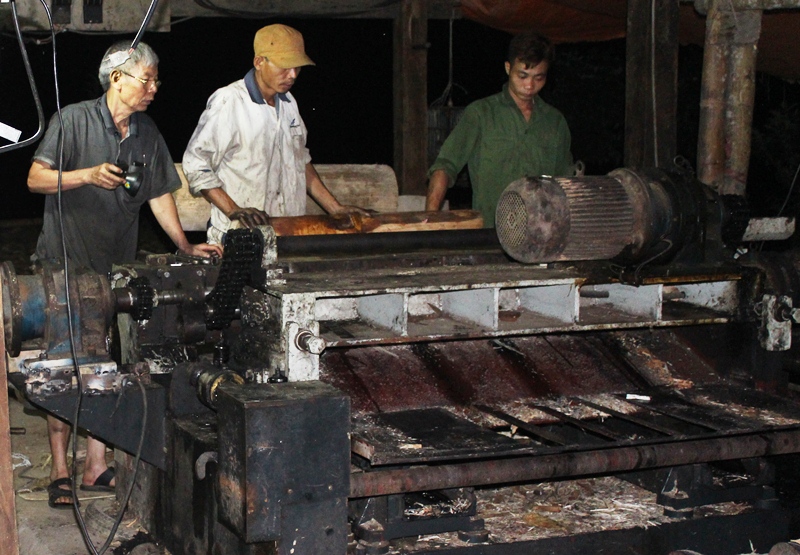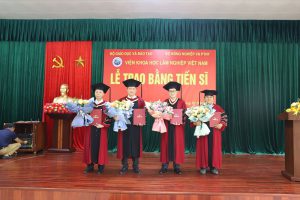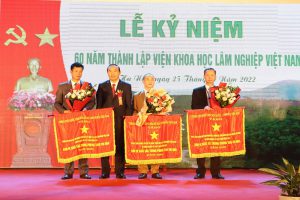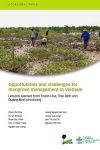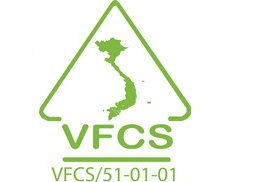The ACIAR’ project FST/2008/039 “Enhancement of production of Acacia and Eucalyptus peeled and sliced veneer products in Vietnam and Australia” has been conducted over 4-year period from 2012 to 2016 with the involvement of the University of Melbourne (MoU), Department of Agriculture and Fisheries of Queensland (DAF), Vietnamese Academic of Forest sciences (VAFS), Vietnamese University of Forestry (VFU) and Center for Agriculture Policies (CAP).
Vietnam has more than three million hectare of forest plantation mainly fast growth species such as Acacia and Eucalyptus. Acacia and Eucalyptus logs have been being significantly potential materials for wood industry and construction sector. In 2015, the total volume of harvested plantation timber was estimated approximately 16 million cubic meter. Plantation timber has been used for multi purposes. However, this is mainly used (more than 80%) as raw material for wood chips production. Although wood chips production has significantly contributed to promoting reforestation, creating more jobs and enhancing income for households who live in rural areas, value added from wood chips production is significantly lower than that of sawn timber and peeled veneer production. It would be waste if plantation timber is only used as raw material for the production of wood chips. The production of peeled veneer is suitable with current quality of plantation, investment and technological understanding of households living in rural areas. Furthermore, peeled veneer production will create higher value added in comparison with wood chips as well as provide material to plywood production which meets the demand for development of furniture manufacturing.
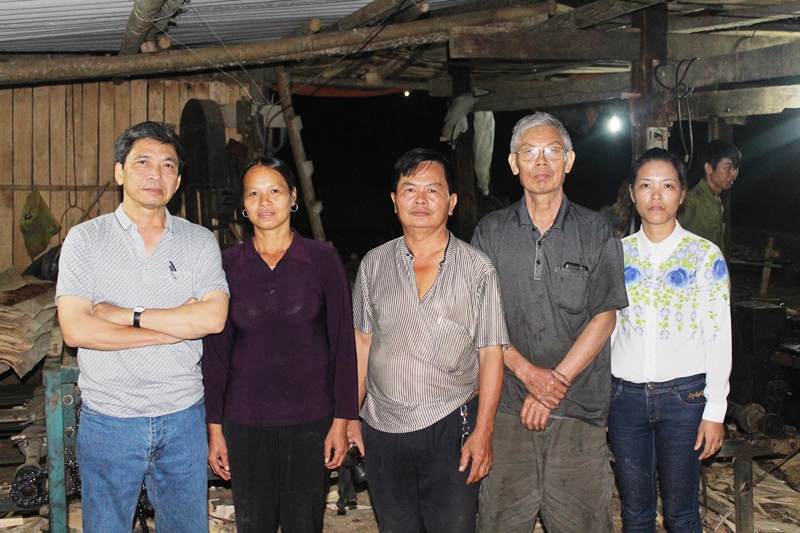 Mill owner (Ms. Mai)-the 2nd lady from the left
Mill owner (Ms. Mai)-the 2nd lady from the left
With the aim is enhancement of value added of Acacia and Eucalyptus plantation, the project FST/2008/039 has achieved some positive results promoting the development of manufacturing and utilization of peeled veneer in Vietnam. One of the project partners is forest growers and households who use plantation for peeled veneer production. During the project’s life, Vietnamese Academic of Forest Sciences has conducted some training courses to raise awareness and disseminate experience on production and utilization of peeled veneer. In the framework of cooperation with the Central Vietnam Farmers’ Association, the project invited a number of households in Bac Can and Yen Bai provinces to participate in the training course on veneer production at Ha Hoa – Phu Tho. After participating in the training course some household have established veneer production mills at Chu Huong commune, Ba Be district, Bac Can province which is a one of the poorest mountainous provinces in the North of Vietnam.
As a result of lacking understanding on machinery and production technology, Household workshops have difficulties in lathe selection, machine operation and maintenance. These leads to poor quality of veneer products, especially thickness variation. Consequently, veneer quality do not meet the exporting requirements. As soon as being informed, project has sent staff to visit workshops and decided to help them to modify lathes and guide them how to operation and maintenance their lathes in order to improve the quality of veneer.
After modifying 03 rollers, guiding lathe operation, the quality of veneer is improved significantly (the thickness variation meets the requirements and stability during peeling). Mrs Hoang Thi Mai (Tay ethnic), who is an owner of peeling workshop, is very happy as result of mastering lathe operation and maintenance. This lead to the production more effective. According calculation, before lathe modification, the buyers often deduct around 20% of total veneer volume because the thickness variation of veneer do not meet the requirements. However, after lathe modification, this situation is no longer exist.
The project has been finished (last June 2016); therefore, it cannot support other households. Hopefully, this positive result can be widely applied and Acacia and Eucalyptus veneer production is going to increasingly grow.
Nguyen Quang Trung
Forest Industry Research Institute (FIRI)
Latest news
- Project: "Research on improving the economic efficiency of plantation timber value chains, meeting legal timber requirements and sustainable forest management"
- Project: Commercial-scale yield trial and completion of planting techniques for newly recognized acacia hybrid cultivars (BV586, BV376, BB055, BV584, BV523, BV434, BV350)
- Project: Study on technology of producing hollow veneer-based composite used in construction and interior wooden furniture
- VFCS is published on the website of the Forestry Department, Ministry of Agriculture, Forestry and Fisheries of Japan
- Memorandum of Understanding signing ceremony on handing over new wood material samples from the Finnish Embassy to the VAFS for displaying
Oldest news
- Vietnam Journal of Forest Science Number 3-2016
- Vietnam Journal of Forest Science Number 2-2016
- Vietnam Journal of Forest Science Number 1-2016
- The Second National Policy Dialogue on Strengthening Forest Tenure for Sustaining Livelihoods and Generating Income
- Vietnam Journal of Forest Science Number 4-2015


